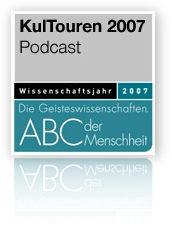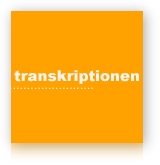SFB/FK-427 Medien und kulturelle Kommunikation
Prof. Dr. Valentin Y. Mudimbe
Gastprofessur SS 2006
Vom 02. bis zum 30. Mai 2006 ist Prof. Dr. Valentin Y. Mudimbe zu Gast beim Kulturwissenschaftlichen Forschungskolleg. Im Rahmen seines Aufenthalts finden folgende Veranstaltungen statt:
The Normal and Its Variations
Workshop
What’s the normal and how to conceive what’s represented by its possible variations? There are at least two entries to the question, and they can be reformulated in what a conjunction or disjunction brings about when exemplified in the very title suggested. The disjunction, the normal or its variations, reactualizes theoretical issues well signified in Aristotle’s lesson from Poetics, and in the psycho-biological deductions from Freud to Lacan and contemporary analysis as indicative of an aphanisis. On the other hand, the conjunction, in the figuration of a partial or total inclusion of two totalities might lead to statements apparently absurd, insofar as they might not submit rationally to logical principles of identity and non-contradiction. The disjunction and the conjunction bring about a demand, that of understanding the normal, as well as its variations, as always part of a conflict of interpretations. This indicates also challenging positions of which the following might be exemplary:
- the normal, as well as any of its variations, signifying a right for constituting itself as a system with its own rules and norms;
- this might bring about a question, on what to do with generous statements from Georges Canguilhem, Jacques Lacan, or Michel Foucault concerning any variation as apt at speaking its own language;
- this leads, indeed, to a third question: in which language a variation can speak if it is not in the language that makes it original, and not originary, and justifies its difference?
Freitag, 19.05.06, 14-18 Uhr
Institut für Afrikanistik, Meister-Ekkehart-Str. 7, 50923 Köln
Global Economy, Transnationality and Third World Cultural Exodus
Abendvortrag
The paradox of the contemporary global economy can be understood from an ethical position which, analyzing the fact that its theories have become a business in the ordinary sense of the word, might emphasize a critical suspension of judgment, making one choose not to qualify any affirmation made in good faith as an error, a failure or a sin; but instead, each time, as an unexpected response approximating not a truth, but a more truthful expression of a need.
Such a position should be seen as non-negotiable, insofar as human dignity is concerned, and in this sense, as an entry to an evaluation of the rationality of today’s global economy. Three axes could be magnified for a critical analysis:
- A theoretical formulation of the international new global geo-political and economic order, as exemplified in three statements: one, the 1962 Thomas Kuhn The Structure of Scientific Revolution; two, the 1976 Marilyn Ferguson The Aquarian Conspiracy. Personal and Social Transformation in Our Time; three, the 1993 Don Tapscott and Art Caston Paradigm Shift. The New Promise of Information Technology.
- The agenda of economic integrations and the general paradigmatic field of gamble and power as it is organized today: one, the new rivalry for world supremacy and the economic game among Japan, Europe and the United States; two, the symptomatic tension regulating institutional conventions; three, the rational and the unethical in grids of evaluation, such as, for example, in hypotheses of gedankenexperiment.
- Cultural difference and politics of identity, as it can be qualified thanks to the singularity of three main entries: one, temporality; two, reflection on oneself as a cipher; three, existing as being for-others.
Dienstag, 30.05.06, 18.30 Uhr
Institut für Afrikanistik - Sprachwissenschaft, 3. Etage, Meister-Ekkehart-Str. 7, 50923 Köln
V. Y. Mudimbe ist zur Zeit Newman Ivey White Professor für Literatur und Philosophie an der Duke University, USA. Er wurde 1941 im Kongo geboren, studierte Linguistik, Soziologie und Philosophie in Kinshasa und Paris (u.a. bei Louis Althusser und Claude Lévi-Strauss) und unterrichtete an zahlreichen Universitäten in Afrika, den USA und Europa. Er erhielt die Herskovits-Auszeichnung und die Ehrendorktorwürde an der Sorbonne in Paris und der Universität von Leuven in Belgien. Zu seinen zahlreichen Publikationen, die intensive Debatten auslösten, gehören The Invention of Africa (1988) und The Idea of Africa (1994).
Veranstaltungstyp: Workshops - Gastprofessuren
Zuletzt geändert am 12. Juni 2007 um 12:13 Uhr - Kontakt - Login zum Bearbeiten




